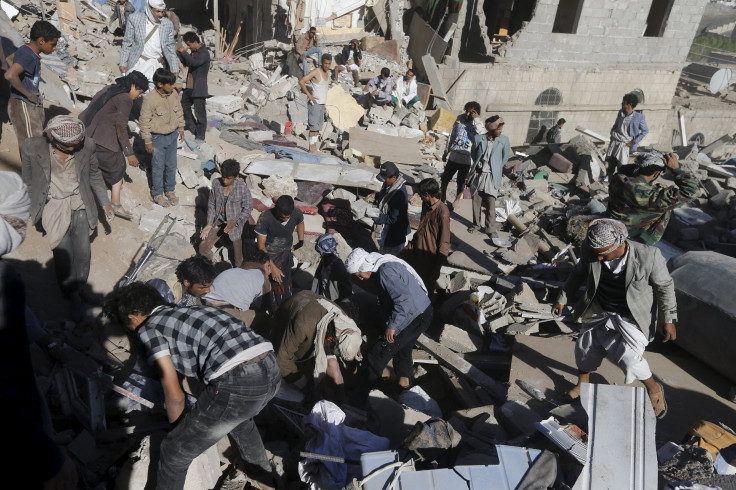Yemen Crisis: Russia Criticizes UN For Not Backing Ceasefire; 1,244 Killed In Conflict So Far

Russia criticized the United Nations Security Council Friday for not backing its appeal for an immediate ceasefire or a humanitarian pause to hostilities in war-torn Yemen, where a Saudi Arabia-led coalition has been conducting airstrikes against Iran-allied Houthi rebels since late March.
In a proposed draft statement, Moscow had requested an urgent meeting of the 15-member Security Council as the Riyadh-led air campaign against the Houthis -- which has targeted various parts of Yemen -- entered its sixth week. But after the statement failed to win approval, Vitaly Churkin, Russia's ambassador to the U.N., condemned his fellow envoys for showing “amazing indecision” in the face of the worsening situation in Yemen, Agence France-Presse (AFP) reported.
“If you cannot agree to a motherhood-and-apple-pie statement, what can you agree on? I don't understand,” AFP quoted Churkin as saying.
Meanwhile, U.N. officials said that the Russian statement had been put on hold while the council members deliberated on the appeal. “There was a strong degree of council agreement on the desperate humanitarian situation in Yemen and need to return to political talks, but no agreement in the room on the exact wording of the statement,” a diplomat told AFP.
According to reports, Russia’s diplomatic move over the crisis in Yemen is likely being viewed with suspicion because of Moscow's close ties to Iran, which is believed to be supporting Houthi rebels who have seized the country’s capital city of Sanaa, and forced Yemen's internationally recognized leader, President Abed Rabbo Mansour Hadi, into exile.
The World Health Organization (WHO) said in a report that the fighting in Yemen -- which has lasted for over a month -- has left at least 1,244 people dead and 5,044 injured. The conflict has also affected about 7.5 million people between March 19 and April 27, according to the report.
“The humanitarian situation in Taiz (a city about 160 miles south of Sanaa) is deteriorating as residential areas continue to witness heavy clashes,” WHO said, in the report. “There are severe shortages medicines for noncommunicable diseases. Shortages in health staff are also being reported in areas where violence is ongoing.”
The deteriorating situation in Yemen has triggered critical fuel shortages in the country, crippling relief efforts, including deliveries of food and medicine. On Friday, U.N. Secretary General Ban Ki-moon expressed his concern about the situation in Yemen and urged all parties to ensure that humanitarian agencies have safe access to the country.
© Copyright IBTimes 2025. All rights reserved.






















